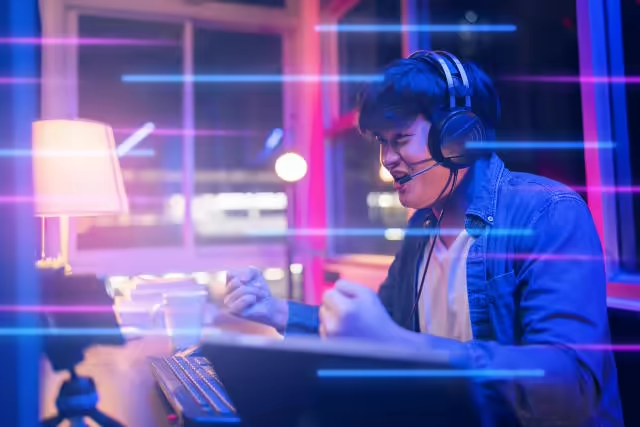Even if you’re not a gamer yourself, it’s widely known that fans of interactive experiences are willing to sink hours into completing complex quests and participating in online team battles, striving for that next level or rare item. The reasons behind this dedication all boil down to motivation, which is a force that’s just as crucial in the office as it is in gaming arenas.
A blend of rewards, goals, and camaraderie holds valuable lessons for driving workplace engagement.
So to unpick the inner workings of this overlap between work and play, stick with us as we explain all.
The Draw of Gamified Incentives
It's no secret that motivation can sometimes wane in a workplace setting, but gamification is one way of turning the tables and catalyzing employee performance. This is not just a baseless claim, as one study found that 89% of professionals will enhance their job performance once more game-like elements are added to the equation.
Here are some practices from online gaming communities that could transform the daily grind into an engaging quest for each member of your team:
Immediate Reward Structures: Just as gamers receive instant feedback and rewards, introduce a system where employees get immediate recognition or bonuses for small achievements.
Progress Bars and Milestones: Visual aids like progress bars in video games provide clear goals and a sense of achievement; adapting them to monitor project advances or personal development can spur motivation.
Collectibles and Badges: Similar to acquiring collectibles in games, offering digital or physical tokens for reaching certain benchmarks can create a tangible sense of accomplishment and collection incentive.
We’ve seen this applied exceptionally well to games like Counter-Strike, where loot boxes and weapon skins keep players coming back for more, and entire economies have evolved via marketplaces like Clash.gg to capitalize on this motivating factor. This mirrors the opportunities open to businesses that are bold enough to grab them through gamified incentives.
In short, these steps not only allow for morale-boosting initiatives to join the day to day ebb and flow of office life, but also introduce a level of dynamism and friendly competition that pushes all stakeholders to do better.
Fostering Teamwork Through Collaborative Play
Collaboration in online gaming is about pooling skills to conquer challenges as well as building alliances that make the journey worthwhile. A good relationship with colleagues can boost focus and productivity, which is why 67% of workers are satisfied with this aspect of their job above all others, according to Pew Research. As such, embracing this aspect can greatly influence your team dynamics.
Here’s how gaming camaraderie can translate into effective workplace collaboration:
Shared Missions: Encourage teams to work together on projects with shared objectives and end-goals, mimicking the way gamers unite to complete a quest.
Role Specialization: Just as in games where each player has a unique role, assign specific responsibilities based on individual strengths to promote ownership and group synergy.
Communication Channels: In gaming, communication is key. Adopt this by ensuring your team has efficient ways to share information, whether through dedicated chat apps or regular check-ins.
While there’s a temptation to make the workplace adversarial in order to encourage competition and innovation, the reality is that teamwork has a much more reliable role in securing collective success. This is the most important lesson for decision-makers to take from the collaborative allegiances seen in gaming.
Tapping Into Goal-Driven Growth
To progress in any game, you need a well-defined set of tasks or achievements. This clarity and focus can be directly applied to professional development, especially in terms of training, with 80% of employees stating that this gives them more purpose in their job, according to a recent LinkedIn survey. Here’s how you can adapt this motivational element for your workplace:
Clear Level Advancement: Define career paths within your organization that mirror the leveling system in games - clear requirements for each promotion instill motivation to grow.
Skill Trees for Development: Offer a variety of training programs akin to a gamer's skill tree, allowing employees to choose their trajectory and specialize in areas they find most engaging.
Milestone Celebrations: Just like gamers celebrate defeating a boss or completing a difficult challenge, celebrate milestones in project completion or professional achievements.
Adapting these tactics encourages both hard work and also loyalty, as employees see tangible pathways and rewards for their dedication. If you’re looking for ways to amp up employee retention rates (which should always be on the agenda), then it’s doubly worth doing.
Related: Cutting-Edge Technologies Shaping the Gaming World: A Spotlight on Destiny 2
Final Thoughts
If you see gaming as a frivolous pastime, you’re missing out – not just in terms of pure entertainment value, but also the work-related insights we’ve outlined.
Colleagues that play together stay together – and gamifying everyday operations, as well as incentivizing performance and productivity, will make organizational goals, as well as individual development milestones, easier to reach consistently.



